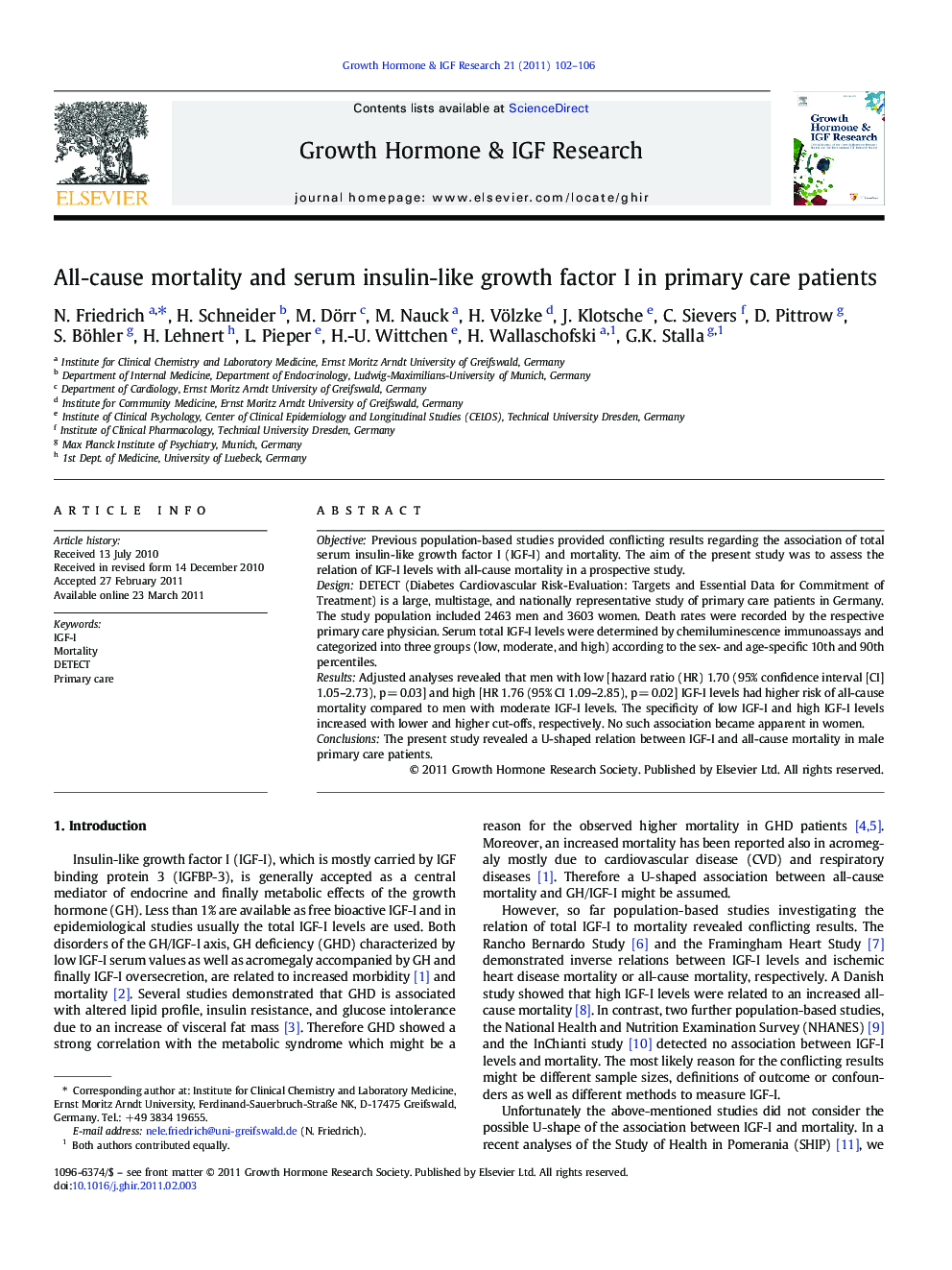| Article ID | Journal | Published Year | Pages | File Type |
|---|---|---|---|---|
| 2802912 | Growth Hormone & IGF Research | 2011 | 5 Pages |
ObjectivePrevious population-based studies provided conflicting results regarding the association of total serum insulin-like growth factor I (IGF-I) and mortality. The aim of the present study was to assess the relation of IGF-I levels with all-cause mortality in a prospective study.DesignDETECT (Diabetes Cardiovascular Risk-Evaluation: Targets and Essential Data for Commitment of Treatment) is a large, multistage, and nationally representative study of primary care patients in Germany. The study population included 2463 men and 3603 women. Death rates were recorded by the respective primary care physician. Serum total IGF-I levels were determined by chemiluminescence immunoassays and categorized into three groups (low, moderate, and high) according to the sex- and age-specific 10th and 90th percentiles.ResultsAdjusted analyses revealed that men with low [hazard ratio (HR) 1.70 (95% confidence interval [CI] 1.05–2.73), p = 0.03] and high [HR 1.76 (95% CI 1.09–2.85), p = 0.02] IGF-I levels had higher risk of all-cause mortality compared to men with moderate IGF-I levels. The specificity of low IGF-I and high IGF-I levels increased with lower and higher cut-offs, respectively. No such association became apparent in women.ConclusionsThe present study revealed a U-shaped relation between IGF-I and all-cause mortality in male primary care patients.
